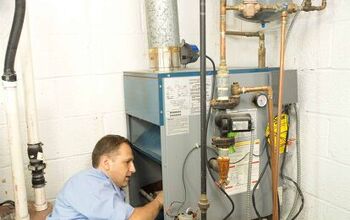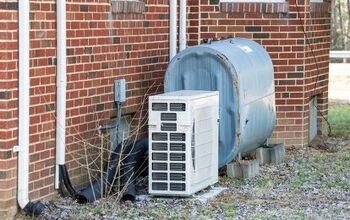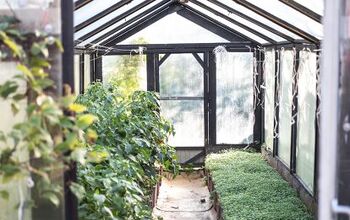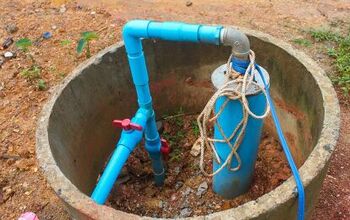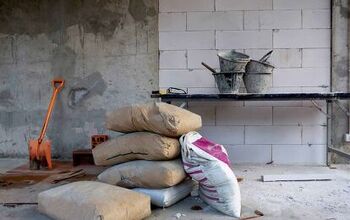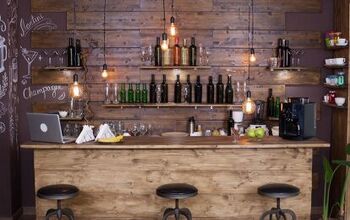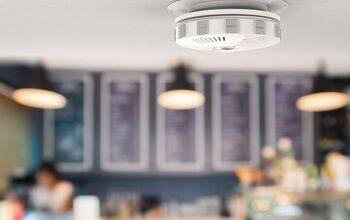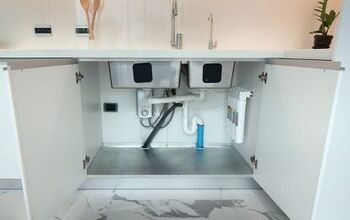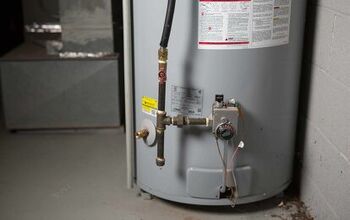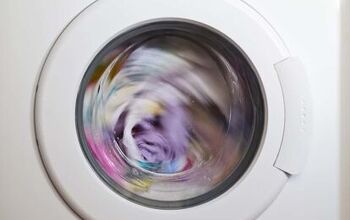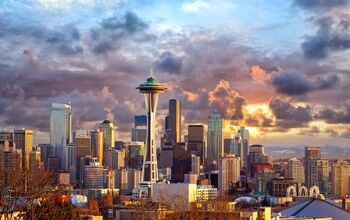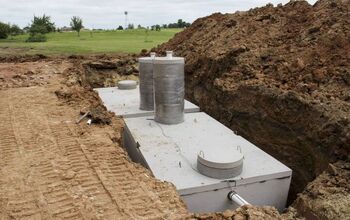How Much Does Boiler Replacement Cost?

Whether you heat your home with steam, a radiant heat flooring system, or a hydronic radiator, you have a boiler that produces the heat for your home. A boiler’s job is to heat water and push either the hot water or hot steam through your pipes to your radiant heat system or radiator and ultimately heat your home. These appliances are comfortable, efficient, and deliver even heating with lower amounts of allergens than conventional furnaces.
Boilers come in a wide selection of configurations, sizes, fuel types, and efficiencies. Because of this, installing a new or replacement boiler in the United States has a wide range of costs associated with it. Ultimately, boiler replacement cost will depend on the type of boiler – including brand, BTU needs, and fuel type – and the labor required for the install. The cost estimate for replacing a boiler usually includes the removal and disposal of the old unit, in addition to any wiring or lines required for the new system to function properly.
With that said, the average cost to replace a boiler is between $1,500 and $15,000, with most homeowners paying around $8,362 for the service. Depending on a number of factors, you could pay as little as $1,192 or as much as $21,300 to have a boiler replaced. This cost estimate is for a high-efficiency gas boiler that is designed to heat a 2,000 square foot home with in-floor radiant heating.
Like everything else, boilers do not last forever. With proper maintenance and care, they can last quite a long time but the typical boiler only lasts about 15 years. As a homeowner, understanding the costs associated with installing a new boiler or replacing an old one is important. That way, you can plan ahead and budget accordingly when the time for boiler replacement comes.
Do You Need a Heating and Cooling Contractor?
Get free, zero-commitment quotes from pro contractors near you.

Boiler Replacement Cost Overview
The average cost of a new boiler is comparable between oil, propane, or gas units. However, there is a number of choices between these units and your other options. For instance, electric boilers typically cost less but are not suitable for warmer climates or smaller homes. On the other hand, outdoor wood boilers are the most expensive upfront but are the most affordable to run.
Regardless of the type of boiler that you choose, the labor costs to install a new or replacement boiler can be high because of the various lines and hookups required to get it functioning. Whether or not the setup needs to be repaired will also have an impact on the overall cost of replacing the boiler. The following table displays a brief overview of the average costs to replace a boiler.
| Average Cost | $8,362 |
| Average Range | $1,500 to $15,000 |
| Low End Cost | $1,192 |
| High End Cost | $21,300 |
Boiler Costs by Fuel Type
Boilers can run you anywhere from $800 to $14,000, while the cost of the unit an installation can cost between $1,500 and $20,000. Of course, prices vary based on the type of boiler. You may also end up spending more money on the fuel that you burn.
Ultimately, the efficiency and size of the boiler are the biggest price determinants, but the boiler’s fuel type also has an impact on cost. Each of the following options have specific applications with unique benefits and drawbacks, along with their own cost range for the boiler itself and installation.
| Fuel Type | Average Cost Range (Boiler Only) | Total Cost Range (Including Installation) |
| Electric | $800 to $7,000 | $1,500 to $9,000 |
| Gas | $1,200 to $8,000 | $3,800 to $12,000 |
| Propane | $1,200 to $8,000 | $3,800 to $12,000 |
| Oil | $1,700 to $6,500 | $4,000 to $9,000 |
| Wood | $5,000 to $14,000 | $8,000 to $20,000 |
Electric Boiler Costs
Electric boilers are the most affordable option, in terms of purchasing and installing. This has to do with the fact that they are not designed for heating an entire home, especially in colder climates. Despite being more effective at converting energy to heat, electric boilers are notoriously pricey to run and are a little bit slow. They don’t generate as much heat as fast as gas or wood to service a larger home.
As such, they are an excellent choice for homes in warmer climates that require little to no heating. Electric boilers will also work well in colder climates for supplemental heating purposes. To have an electric boiler installed, you’re looking at spending between $1,500 and $9,000.
Natural Gas Boiler Costs
Gas boilers are the most common way to produce hot water for a hydronic or steam heating system. Although gas is not available everywhere, gas boilers are incredibly efficient and the gas itself is very inexpensive. The cost to have a gas boiler installed is between $3,800 and $12,000 – depending on the size of the boiler and any modifications that may be required.
Since both gas and propane boilers are the most popular, you’ll typically find cheaper parts and services for these systems. However, for the system to function, you will need a gas line running to your property.
Propane Boiler Costs
For those that live in an area where natural gas is not available, propane boilers are your next best option. Propane burns cleaner than both oil or gas, making it more eco-friendly. Although propane does cost more than gas, it is more affordable than electricity or oil. Most gas burners also offer the option of burning propane or you can have it converted to burn propane.
- Conversion kits for converting natural gas to propane typically vary based on the brand but cost between $50 and $300 on average. Although you can convert most boilers from one gas to another, this isn’t always an option. Make sure you speak with your HVAC professional to determine if yours can be converted.
- Propane costs double the amount of natural gas but is usually nearly twice as efficient. Propane offers convenience for off-grid living and remote locations. However, you will have to pay for delivery fees which will vary depending on where you live.
Regardless, the cost to install a propane boiler is between $3,800 and $12,000 and, again, usually costs slightly more than their natural gas counterparts.
Oil Boiler Costs
Oil boilers are relatively common in parts of the Northeast where natural gas may be challenging to obtain. Although oil boilers burn hotter than propane or gas, they require more maintenance. Costs are higher because you also need to have an oil supply tank installed. The oil tank often requires replacing, which adds to the cost of lifetime ownership.
While the cost to maintain an oil boiler is more, you will use less oil. Though, these boilers are typically less efficient than other boiler options, with high-efficiency units only reaching 95% efficiency with a few brands. Not to mention, oil, which used to be cheap, has grown increasingly expensive in recent years. The cost to purchase and install an oil boiler is between $4,000 and $9,000.
Outdoor Wood Boiler Costs
If you live in a rural location and have convenient access to a lot of wood, you may choose to heat your home using an outdoor wood boiler. Aptly named, these boilers burn wood outside your home to heat water and then circulate the hot water throughout your home. As such, outdoor wood boilers serve as exceptional off-grid systems.
When compared to other alternatives, outdoor wood boilers are large units that produce a lot of heat. Although they are more expensive upfront, they are cheaper to run. In fact, most are large enough to heat both your home and the hot water that you need in your house. Outdoor wood boilers have an installed cost range of $8,000 to $20,000.
Hot Water vs. Steam Boilers
Generally speaking, boilers heat your home in one of two ways: steam or hot water. A lot of newer homes use in-floor radiant heat systems or hydronic radiators. In these homes, a hot water boiler heats up the water, which then is distributed throughout the pipes in your home and back to the boiler where it cools to be heated again.
Older homes sometimes feature upright steam radiators, which require a steam boiler that heats water to a higher temperature and converts it to steam. This steam is then sent throughout the pipes to heat your home, before condensing back to water and returning to the boiler to be reheated.
Hot water boilers are smaller, more efficient, and tend to cost less than their steam counterparts.
| Boiler Type | Average Cost (Unit Only) |
| Hot Water Boiler | $1,200 to $8,000 |
| Steam Boiler | $2,500 to $9,000 |
Hot Water Boiler Cost
Again, hot water boilers are both more efficient and more compact than steam boilers. They also have lower upfront purchase costs. All boiler fuel types produce hot water, including wood and electric. Hot water boilers have starting costs as low as $1,200, but could be over $8,000 depending on the model.
Steam Boiler Cost
Steam boilers have to be bigger in order to accommodate both water and steam. Since they need to reach higher temperatures, these boilers are less efficient than hot water boilers. Not all boilers can produce steam either – though, gas, oil, and propane boilers come in steam models. Steam boilers have starting costs as low as $2,500 to $3,000, but could cost as much as $9,000.
Condensing vs. Non-Condensing Boilers
In terms efficiency, oil, natural gas, and propane boilers come in two main types: condensing and non-condensing. A non-condensing boiler is also commonly referred to as a standard boiler. This type of boiler heats the water, while some of that heat is released and vented to the outdoors.
A condensing boiler, on the other hand, condenses the exhaust in order to retrieve heat that would otherwise escape to the exterior. While a standard boiler can only reach efficiencies around 94% at best, and between 80% and 89% on average, a condensing boiler can reach efficiencies as high as 98%. Since condensing boilers must deal with the higher acidity that the exhaust condensing process produces, they must be outfitted with stainless steel heat exchangers.
As a result, condensing boilers are more expensive and have a shorter lifespan than non-condensing, or standard, boilers. While condensing boilers cost more upfront, they will save you money on your energy bills every month. Costs for standard boilers start at $1,200, while condensing boiler costs begin at $3,000.
Wood boilers function the same as a condensing boiler, but the process is referred to as gasification. If you want to purchase a high-efficiency wood boiler, look for a gasification boiler instead of a condensing boiler.
What is a Combi Boiler?
If you have a smaller home and would like to heat both your home and your hot water using natural gas, oil, or propane, you’ll want to look into getting a combination – or, combi boiler. These boilers are small-efficiency units that heat water on one side for heating your home and water on the other side for bathing, laundry, dishes, and the like.
Combi boilers are usually smaller in size and start at $2,000 for very compact units, and cost around $3,000 for average-sized models.
Boiler Efficiency Ratings
Each boiler will come with an AFUE, or annual fuel utilization efficiency, rating. The higher the rating, the more efficiently the unit transfers energy into heat. Higher ratings mean that you’ll enjoy lower heating bills and the boiler has less of an environmental impact. For instance, an AFUE of 90 means that 90% of the energy supplied to the boiler is transferred into actual heat in your home.
- High efficiency – AFUE of 90 or higher. These units reduce heating costs by up to 30%
- Standard efficiency – AFUE of 80 to 89. These units typically come standard in most homes and are about 30% cheaper than high efficiency boilers.
- Low efficiency – AFUE of 56 to 70. These units are no longer available but may still exist in some older homes.
Thermal efficiency, on the other hand, refers to what the furnace moves from the heating chamber into the water. Over time, with design flaws, sediment buildup, and corrosion, the thermal efficiency will diminish. This means that you may start out with 90% AGUE, but it may start to perform at 80% over time.
What Size Boiler?
Regardless of the type or fuel type of the boiler that you buy, it’s important that you also choose a unit that is the proper size for your home. A boiler that is too small will struggle to maintain comfortability, while one that is too big means that you’ll spend more money on utility bills and shorten the lifespan of the unit.
To find out the proper size boiler for your home, you need to know the square footage of the area you want to heat as well as the climate where you live. You can find your zone by examining this map from the United States Department of Energy.
Electric boilers are ideal for zones 1 to 3, with only partial operation in zones 4 and 5 – such as for an addition. Meanwhile, wood boilers are recommended for zones 5 and up since they typically produce more BTUs than necessary for homes in warmer areas.
| Climate Zone | BTUs (per square foot) |
| 1 & 2 | 18 to 30 |
| 3 | 25 to 35 |
| 4 | 28 to 40 |
| 5 | 40 to 50 |
| 6 & 7 | 50 to 60 |
In order to determine the right boiler size, you want to multiply the square footage of the area you intend to heat by the number of BTUs required per square foot for your climate zone (examine the table above). The table below outlines the average boiler size required to heat a home in zone 4:
| Square Footage | BTUs Required |
| 1,000 | 28,000 to 40,000 |
| 1,500 | 42,000 to 60,000 |
| 1,750 | 49,000 to 70,000 |
| 2,000 | 56,000 to 80,000 |
| 2,500 | 70,000 to 100,000 |
Note: For best results, you ideally want to stay with 10% to 20% of the number of BTUs required for your space. Any larger than that and your boiler is considered too big for your home.
Labor Costs for Installing a New Boiler vs. Replacement Boiler
When you’re installing a boiler for the first time, you need to have the boiler installed as well as a number of other components in order for it to function properly. This includes a flue or flue pipe, exhaust, a drain for high-efficiency units, and a fuel line for propane, oil, or gas boilers. Wood boilers require a line to be installed between the outdoor boiler and the interior where it connects with a heat exchanger.
Each installation is different, with fuel type, location, and whether the unit is high-efficiency having the most major impacts on total installation cost. For this reason, the labor costs to install a boiler are typically between $1,000 and $3,000 for oil, natural gas, and propane. Additional costs such as hooking up drains, fuel lines, and exhaust lines cost $500 to $5,000. This makes the average installation cost for a gas boiler around $7,500. Whereas, wood boilers are $2,500 to $5,200 for the labor to install, with all the required equipment, and electric boilers cost between $800 and $1,200 to install.
Even if you already have a boiler installed and need it replaced, the labor costs to install are relatively similar. Whether the boiler is new or a replacement, it will still need a new exhaust, drain, or fuel line. You will also likely incur disposal fees for the old boiler or require new pipes for connecting the boiler to your heating system. With that in mind, the boiler replacement cost is equal to the cost of installing a new boiler – with the average cost of installation being roughly $8,362.
When to Replace a Boiler
Boilers, like everything, won’t last forever and the average boiler has a life expectancy of about 15 years. However, most boilers that are properly maintained will last up to 25 years before they need to be replaced. The strongest indications of a boiler that needs replacing are when the unit is no longer heating water as efficiently, the boiler stops working, you notice that you’re paying more in fuel costs without an increase in heat, or you have visible corrosion or leaks on the outside of your boiler.
Additionally, if your boiler is over 10 years old, you may want to consider replacing it with a more energy-efficient model. This is especially beneficial if you’ve recently made upgrades to your home’s efficiency – like improved insulation – as this will make your current boiler oversized for the space.
Repair or Replace?
The question of repairing or replacing a boiler ultimately comes down to weighing the benefits and costs of each option. Boiler repairs typically cost between $200 and $600 on average, while installing a new boiler can cost ten times that range.
A good rule of thumb to follow is called the $5,000 rule. Multiply the quoted cost of repairs by the number of years that you’ve had the boiler. If the resulting number exceeds the price of a new or replacement installation, or $5,000, you should replace it. If the number is less, then you should move forward with the repair instead.
Boiler Cost by Popular Brand
Another way to categorize boilers is based on the manufacturer. The table below outlines some of the most common brands, along with the price of the boiler and the price to have the unit installed.
| Brand | Boiler Price (Unit Only) | Installed Cost (Unit & Installation) |
| Burnham | $1,100 to $5,300 | $2,600 to $7,800 |
| Navien | $1,700 to $4,300 | $3,200 to $6,800 |
| Utica | $1,700 to $5,500 | $3,200 to $8,000 |
| Peerless | $1,600 to $4,800 | $3,300 to $7,300 |
| Crown | $1,500 to $4,200 | $3,000 to $6,700 |
Boiler Installation Permits
Boiler installation permits typically cost between $50 and $300. If the boiler is being installed as part of new construction, it will be included in the building permits – which range from $350 to $1,800. Depending on your local government, you may also be required to have a fire inspection performed before any heating system replacements can occur. The fees for these inspections will depend on the size of the boiler, typically costing between $40 and $75.
Do You Need a Heating and Cooling Contractor?
Get free, zero-commitment quotes from pro contractors near you.

Related Questions
What’s the difference between a boiler and a furnace?
The difference between a boiler and a furnace has to do with how the unit heats the air. A boiler heats the water first, which then travels through the pipes in your home and through radiators to produce heat. A furnace, on the other hand, heats coils and distributes air over the heated metal and through your ductwork to heat your home.
When should you replace a boiler?
Generally speaking, a boiler should be replaced every 15 years or so. Though, you may consider replacing an older low-efficiency model with a higher efficiency unit to reduce your carbon footprint and lower your utility bill.
Can a plumber install or replace a boiler?
In many areas of the country, plumbers can install or replace a boiler. However, the job is more traditionally done by an HVAC professional.
Related Articles

Jessica considers herself a home improvement and design enthusiast. She grew up surrounded by constant home improvement projects and owes most of what she knows to helping her dad renovate her childhood home. Being a Los Angeles resident, Jessica spends a lot of her time looking for her next DIY project and sharing her love for home design.
More by Jessica Stone









